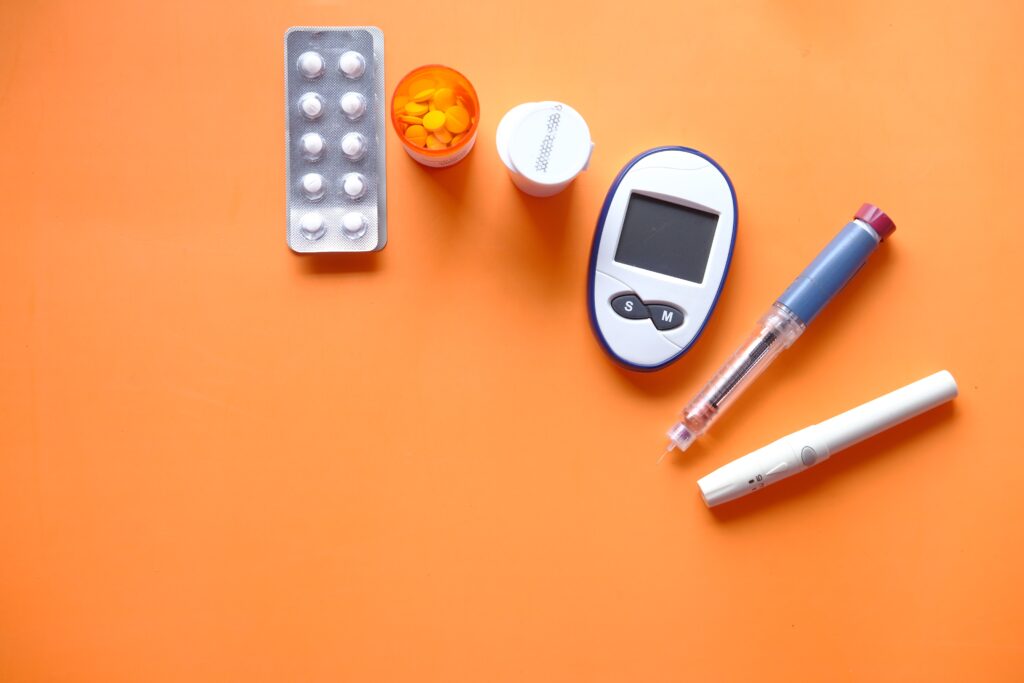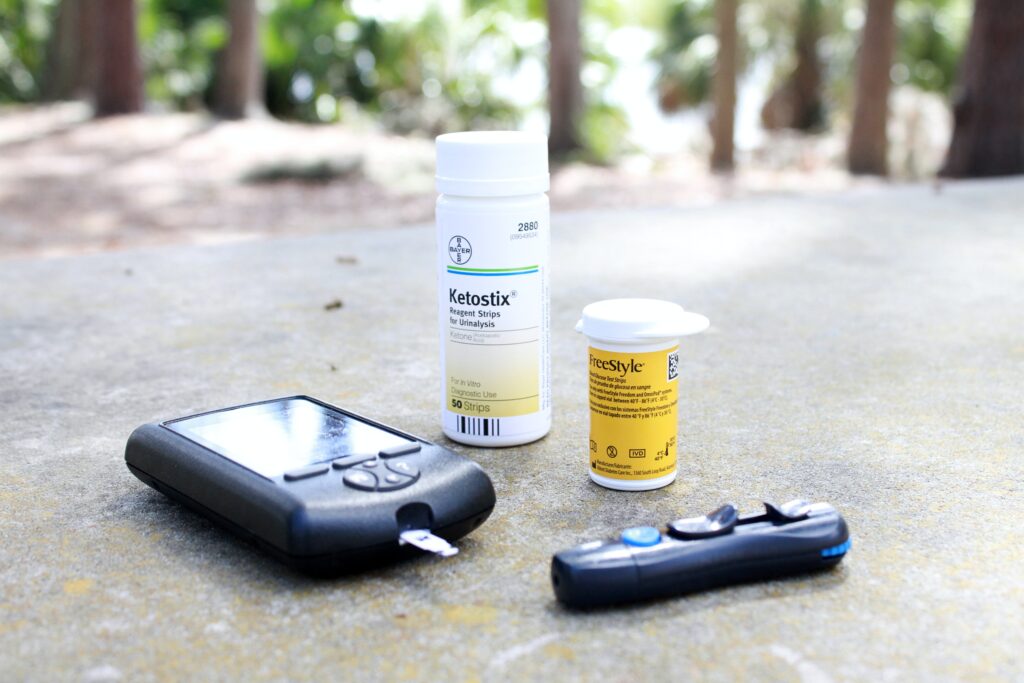Are you looking for ways to reduce your risk of diabetes? This article has got you covered! Discover the power of diet and exercise in preventing diabetes and learn some practical tips on how to integrate healthy habits into your daily routine. By making small but consistent changes to your lifestyle, you can take charge of your health and significantly minimize the chances of developing diabetes. So let’s jump right in and explore the fantastic benefits of a balanced diet and regular exercise in reducing the risk of diabetes.

Understanding the Link Between Diabetes and Lifestyle Choices
Defining diabetes
Diabetes is a chronic condition that affects the body’s ability to regulate blood sugar levels. There are two main types of diabetes: type 1 and type 2. Type 1 diabetes is an autoimmune disease where the body’s immune system attacks and destroys the insulin-producing cells in the pancreas. Type 2 diabetes is characterized by insulin resistance, which means that the body is unable to effectively use insulin or produce enough of it.
How lifestyle choices impact diabetes risk
Lifestyle choices play a significant role in the development of type 2 diabetes. Factors such as diet, physical activity, obesity, and stress can all contribute to an increased risk of developing the condition. Making healthy lifestyle choices can help prevent or manage diabetes.
Understanding the role of obesity and physical inactivity in diabetes
Obesity and physical inactivity are two significant risk factors for type 2 diabetes. Excess body weight, especially around the abdomen, can lead to insulin resistance, making it harder for the body to regulate blood sugar levels. Physical inactivity also contributes to insulin resistance and can lead to weight gain. Engaging in regular exercise and maintaining a healthy weight can help reduce the risk of developing diabetes.
Importance of Balanced Diet in Diabetes Prevention
Role of diet in diabetes prevention
Maintaining a balanced diet is essential for preventing and managing diabetes. A healthy diet can help regulate blood sugar levels, support weight management, and reduce the risk of complications associated with diabetes. A balanced diet includes a variety of foods from different food groups and focuses on nutrient-rich choices.
Importance of nutrient-rich foods
nutrient-rich foods, such as fruits, vegetables, whole grains, lean proteins, and healthy fats, provide the necessary vitamins, minerals, and fiber for optimal health. These foods have a lower glycemic index, which means they have a minimal impact on blood sugar levels. Including a variety of these foods in your diet can help prevent spikes and dips in blood sugar levels.
Impact of excessive sugar and unhealthy fats on diabetes risk
Consuming excessive sugar and unhealthy fats can significantly increase the risk of developing type 2 diabetes. Foods and drinks high in added sugars can lead to weight gain, insulin resistance, and elevated blood sugar levels. Similarly, foods high in unhealthy fats, such as saturated and trans fats, can contribute to insulin resistance and inflammation in the body. Limiting the intake of sugary foods and beverages and opting for healthier fat choices, like avocados and nuts, can help lower the risk of diabetes.
Creating a Balanced, Diabetes-Friendly Diet Plan
Identifying healthy carbohydrates
Carbohydrates are an essential source of energy for the body. However, not all carbohydrates are created equal. Choosing healthy carbohydrates, such as whole grains, legumes, and non-starchy vegetables, can help regulate blood sugar levels and prevent spikes. These foods are rich in fiber, which slows down the absorption of sugar into the bloodstream.
Choosing lean proteins
protein plays a crucial role in diabetes management. Lean proteins, such as skinless poultry, fish, tofu, and beans, are excellent choices as they have a minimal impact on blood sugar levels. Including lean proteins in your meals can help balance blood sugar levels, promote feelings of fullness, and support the growth and repair of body tissues.
Incorporating plenty of fruits and vegetables
Fruits and vegetables are not only rich in essential vitamins and minerals but also provide fiber that aids digestion and blood sugar control. Aim to fill half of your plate with non-starchy vegetables, such as broccoli, spinach, peppers, and carrots. Incorporate a variety of fruits into your diet, but be mindful of portion sizes as some fruits can be higher in natural sugars.
Understanding portion control and meal planning
Portion control is crucial for managing diabetes. It involves eating the right amounts of different foods to maintain a healthy balance. Meal planning can help you control portion sizes and make healthier food choices. Divide your plate into sections – half for non-starchy vegetables, a quarter for lean proteins, and the remaining quarter for healthy carbohydrates. This way, you can ensure a balanced and diabetes-friendly meal.
Role of Exercise in Diabetes Prevention
Understanding the link between physical activity and blood sugar management
Physical activity plays a significant role in diabetes prevention and management. When you engage in exercise, your muscles use glucose for energy, which helps lower blood sugar levels. Regular physical activity also improves insulin sensitivity, making it easier for your body to use insulin effectively and regulate blood sugar levels.
Benefits of regular exercising
Regular exercise offers numerous benefits for diabetes prevention and overall well-being. It helps maintain a healthy weight, reduces insulin resistance, lowers blood pressure, improves cardiovascular health, and enhances mood and mental well-being. Engaging in regular exercise is a powerful tool for reducing the risk of developing diabetes and managing the condition.
How exercise contributes to weight loss and reduces diabetes risk
Exercise promotes weight loss by burning calories and increasing metabolism. When combined with a balanced diet, physical activity can help create a calorie deficit, leading to weight loss. Losing excess weight is crucial for reducing the risk of developing type 2 diabetes, as obesity is a significant risk factor for the condition. Regular exercise also helps build and maintain muscle mass, which further contributes to weight management.

Creating an Effective Exercise Program
Incorporating aerobic exercises
aerobic exercises, also known as cardio exercises, are excellent for diabetes prevention and management. These exercises increase your heart rate and breathing and help burn calories. Examples of aerobic exercises include brisk walking, jogging, swimming, cycling, and dancing. Aim for at least 150 minutes of moderate-intensity aerobic exercise per week or 75 minutes of vigorous-intensity exercise.
Adding strength training to your routine
Strength training exercises are essential for building and maintaining muscle mass, improving bone density, and boosting metabolism. Muscle tissue burns more calories than fat tissue, even at rest. Incorporate strength training exercises at least two days a week, targeting all major muscle groups. This can include exercises using resistance bands, free weights, or weight machines.
Understanding the importance of consistency and regularity in exercise
Consistency and regularity are key when it comes to exercise and diabetes prevention. Aim for at least 30 minutes of physical activity most days of the week. If you’re new to exercise, start slowly and gradually increase the duration and intensity. Find activities you enjoy and make them a part of your daily routine. Remember, every bit of movement counts, so even short bouts of activity throughout the day can make a difference.
Impact of Weight Management on Diabetes Prevention
The link between obesity and diabetes
Obesity is closely linked to the development of type 2 diabetes. Excess body weight, especially visceral fat around the abdomen, contributes to insulin resistance, making it harder for the body to regulate blood sugar levels. Losing weight and maintaining a healthy weight is crucial for reducing the risk of diabetes and managing the condition effectively.
Importance of maintaining a healthy weight
Maintaining a healthy weight is essential for overall health and well-being, particularly in diabetes prevention. Weight management can improve insulin sensitivity, help regulate blood sugar levels, reduce the risk of complications associated with diabetes, and improve cardiovascular health. Adopting a healthy diet and engaging in regular physical activity are key components of maintaining a healthy weight.
Role of diet and exercise in weight management
Both diet and exercise play crucial roles in weight management. A balanced diet that focuses on nutrient-rich foods and portion control can help create a calorie deficit for weight loss. Regular exercise not only burns calories but also helps build muscle mass, which further contributes to weight management. By adopting healthy eating habits and incorporating physical activity into your daily routine, you can achieve and maintain a healthy weight to reduce the risk of diabetes.

Importance of Regular Check-Ups and Screening
Early detection of diabetes
Regular check-ups and screenings are essential for the early detection of diabetes. Routine blood tests, such as fasting blood sugar and HbA1c tests, can help identify any abnormalities in blood sugar levels. Detecting diabetes early allows for prompt intervention and management to prevent complications and improve outcomes.
Understanding blood glucose levels
Monitoring blood glucose levels is crucial for managing diabetes. Regularly checking your blood sugar levels can help you understand how different foods, physical activity, and medications affect your blood sugar levels. This knowledge allows you to make informed decisions about your diet, exercise, and medication regimen to maintain optimal blood sugar control.
Role of regular medical screenings in diabetes prevention
Regular medical screenings, including blood tests and other diagnostic exams, are essential for diabetes prevention. These screenings can help identify risk factors, such as high blood pressure or high cholesterol, that contribute to the development of diabetes. Regular check-ups also allow healthcare professionals to monitor your overall health and provide guidance on healthy lifestyle choices to prevent or manage diabetes.
Managing Stress for Diabetes Prevention
Understanding the stress-diabetes connection
stress can have a significant impact on blood sugar levels and contribute to the development of diabetes. When you’re under stress, your body releases hormones, such as cortisol, that can raise blood sugar levels. Chronic stress can also lead to emotional eating, poor sleep, and a lack of motivation to engage in healthy behaviors, all of which can increase the risk of diabetes.
Practices like meditation and yoga to manage stress levels
engaging in stress management practices, such as meditation and yoga, can help reduce stress levels and improve overall well-being. These practices promote relaxation, mindfulness, and deep breathing, which can help lower cortisol levels and regulate blood sugar levels. By incorporating stress management techniques into your daily routine, you can better manage stress and reduce the risk of diabetes.
Impact of stress relief on blood sugar levels
Effectively managing stress can have a positive impact on blood sugar levels. When you reduce stress levels, your body’s stress response system becomes more balanced, leading to improved blood sugar control. By incorporating stress relief techniques into your lifestyle, you can better manage your diabetes risk and promote overall health and well-being.

Importance of Sleep in Diabetes Prevention
Role of sleep in maintaining good health
Sleep plays a vital role in maintaining good health. During sleep, your body repairs and rejuvenates itself, and important hormonal processes occur. Adequate sleep is crucial for proper immune function, cognitive function, emotional well-being, and overall physical health.
Link between sleep disorders and diabetes
Sleep disorders, such as sleep apnea and insomnia, have been linked to an increased risk of developing type 2 diabetes. Sleep apnea, characterized by interrupted breathing during sleep, can contribute to insulin resistance and elevated blood sugar levels. Insomnia and poor sleep quality can disrupt hormonal regulation, leading to increased appetite, cravings for unhealthy foods, and weight gain, all of which are risk factors for diabetes.
Importance of adequate sleep for blood sugar control
Adequate and restful sleep is vital for blood sugar control. Sleep deprivation can lead to hormone imbalances, insulin resistance, and elevated blood sugar levels. Making sleep a priority and practicing good sleep hygiene can help regulate blood sugar levels, reduce the risk of developing diabetes, and improve overall health.
Diabetes Prevention for Special Populations
Preventing diabetes in children and teens
Preventing diabetes in children and teens is crucial for their long-term health and well-being. Encouraging healthy eating habits, promoting regular physical activity, and minimizing sedentary behaviors are key strategies for prevention. Limiting sugary drinks and snacks, promoting balanced meals, and engaging in age-appropriate physical activities can help reduce the risk of diabetes in this population.
Role of diet and exercise in preventing gestational diabetes
Gestational diabetes is a temporary form of diabetes that occurs during pregnancy. Diet and exercise play a critical role in preventing and managing gestational diabetes. Following a balanced diet tailored to meet the specific needs of pregnancy, engaging in regular physical activity, and controlling excessive weight gain can help reduce the risk of gestational diabetes and its complications.
Special considerations for preventing diabetes in seniors
Preventing diabetes in seniors requires special considerations due to age-related changes in metabolism and overall health. A balanced diet that takes into account special dietary needs, such as increased fiber intake and nutrient density, is crucial. Regular physical activity, including exercises that improve strength and balance, can help maintain muscle mass, promote cardiovascular health, and reduce the risk of diabetes in seniors. Regular medical check-ups and screenings are also important for early detection and management of diabetes in this population.
In conclusion, reducing the risk of diabetes requires adopting a healthy lifestyle that includes a balanced diet, regular exercise, stress management, adequate sleep, and regular medical check-ups. By making positive lifestyle choices, you can significantly reduce the risk of developing diabetes and improve your overall health and well-being. Remember, small changes can make a big difference, and your health is worth the investment.


